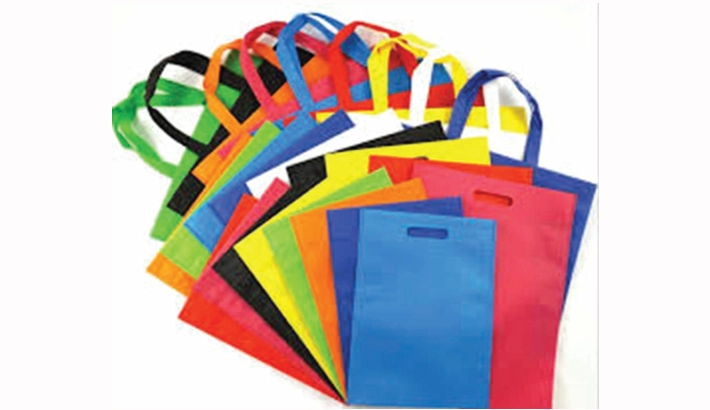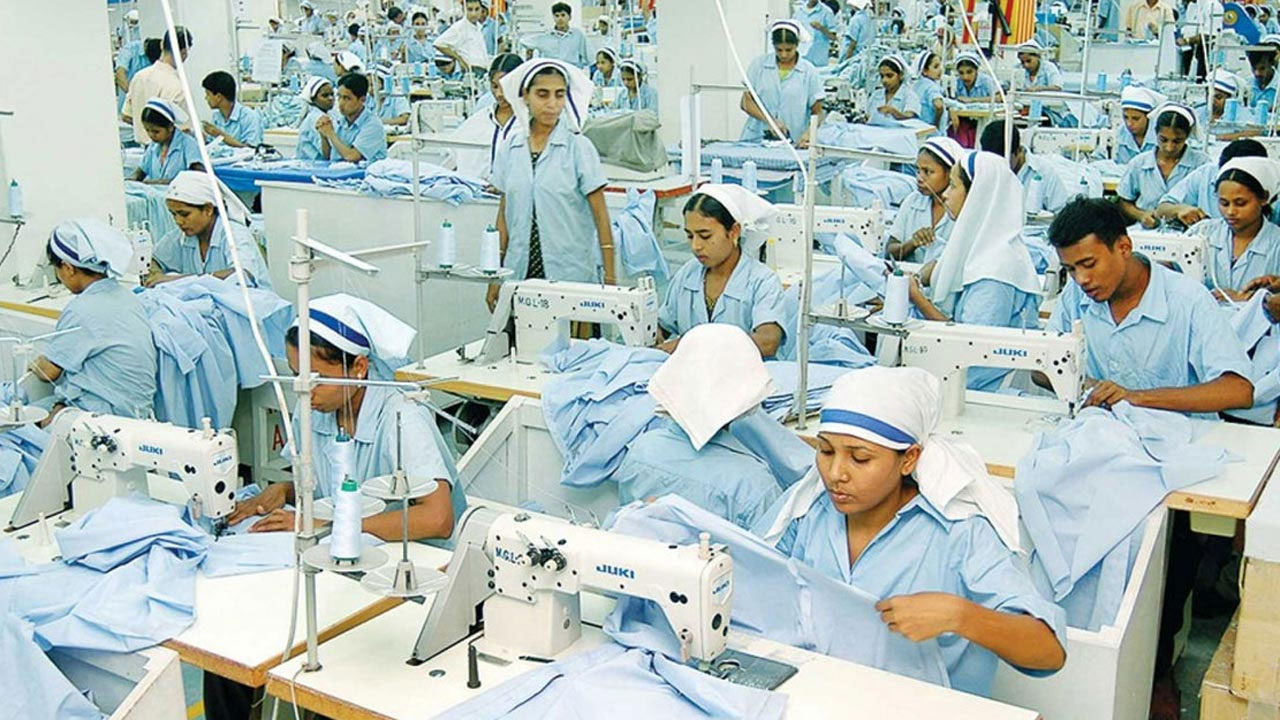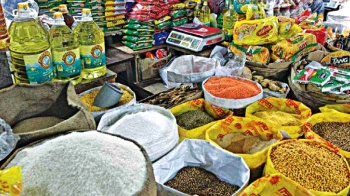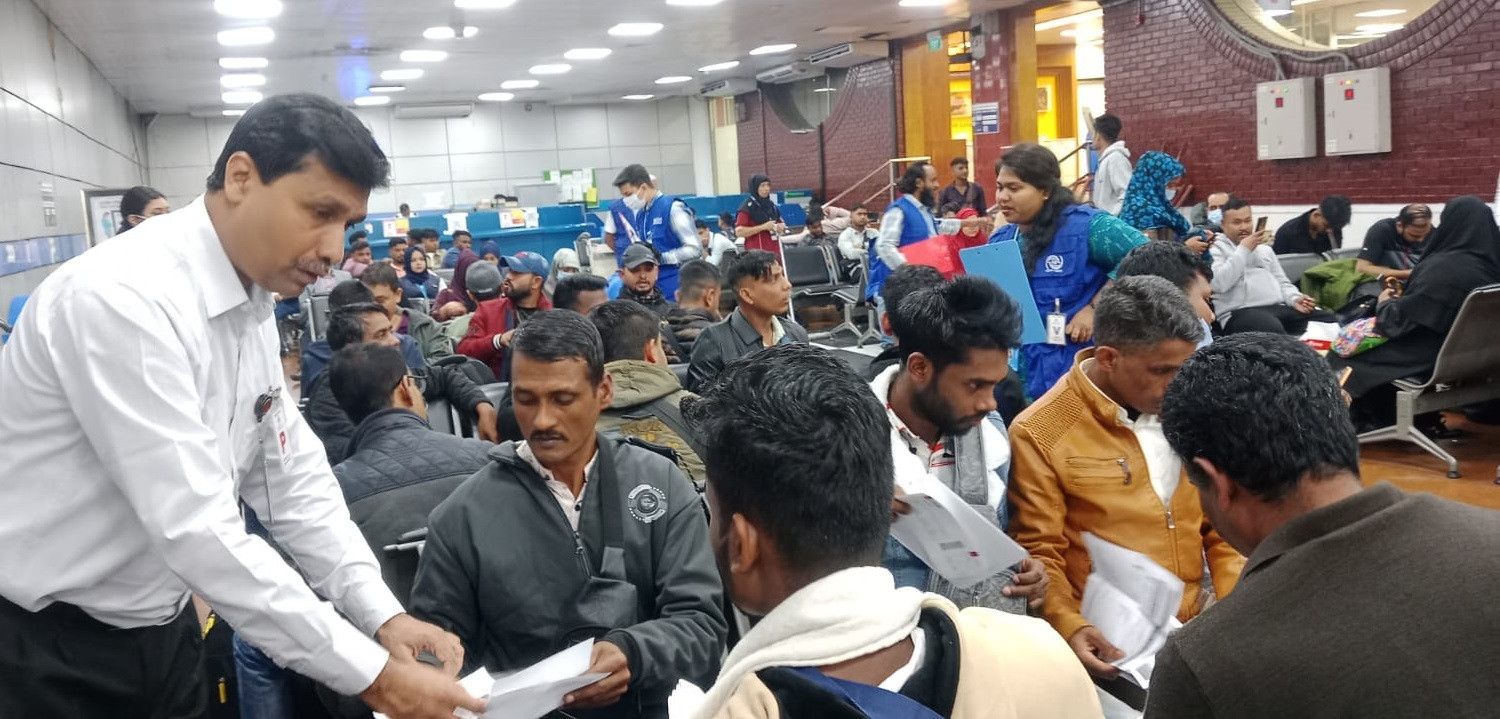Nowadays non-woven bags are being used indiscriminately for many purposes, but they are more harmful than polythene bags to public health and environment.
Non-woven shopping bags are now reigning supreme in the country, which people take as alternative to harmful polythene bags. Non-woven bags look safe but they are more hazardous, experts say.
Non-woven bags are made of spun and bond polypropylene fiber. They are soft and air-permeable. Non-woven bags are produced from non-biodegradable plastics. They are manufactured on a machine by spreading rolls of plastic, environmentalists say.
Lack of proper monitoring by the authorities concerned has been blamed for the rampant use of the hazardous non-woven bags in the country, they opined.
“Now most of the bags are non-woven. Raw materials are polypropylene or terephthalate glycol ester. Raw materials of plastic bags are polyethylene. Raw materials of both polythene and non-woven bags are the same,” said Engineer Abdus Sobhan, general secretary of Poribesh Banchao Andolon (Poba).
He also said non-woven bags are more dangerous than polythene bags. Non-woven bags are not biodegradable and emit harmful substances in hot temperature.
The use of non-woven bags made of polypropylene fabric and sold under the tag of “cloth bags” seems to have hit efforts to shift to the eco-friendly carrying bags.
Some shops across the country are selling non-woven bags, saying them as cloth bags.
Both polypropylene and polyethylene are not degraded less than 50 years. When the temperature is high, polypropylene will release harmful substances.
The weight and volume of non-woven bags are higher than normal plastic bags -- it reaches more than 10 times.
Different traders stock non-woven bags under the impression that they come under the category of cloth bags.
Some non-woven bags are decorated with buttons, sequins and some other small parts which cannot be recycled.
Bags made of polypropylene fiber cannot be recycled and more harmful to the environment than polythene, said Engineer Abdus Sobhan.
“Lack of awareness among users about non-woven bags made of polypropylene fabric is unbeatable and their use has been increasing rapidly,” he said.
Dr Shahriar Hossain, secretary general of the ESDO, said non-woven bags are more dangerous than polythene bags. Non-woven bags cause more environmental hazards.
Raw materials of both the bags are the same, but volume of non-woven bags is higher than normal plastic bags, he added.
More than 3.5 million non-woven bags are used in the country every day, Poribesh Banchao Andolon (Poba) said.
Sources said some business houses are importing polypropylene of polyethylene with bond facility and selling it outside while some dishonest businessmen are collecting polypropylene and manufacturing the tissue bag with it and now they are openly marketing it across the country.
The Department of Chemical Engineering of Bangladesh University of Engineering and Technology (BUET) found during a test that non-woven shopping bags, unlike polythene bags, are not biodegradable.
The government banned the manufacturing, marketing and use of polythene shopping bags in the country in 2002.
Under the law, there is a complete ban on production, import, marketing, sales, display, storing, distribution and transportation of polythene bags.
In support of the ban, the government in 2010 enacted another law, titled the ‘Mandatory Jute Packaging Act 2010’, for compulsory use of jute in packaging products instead.












